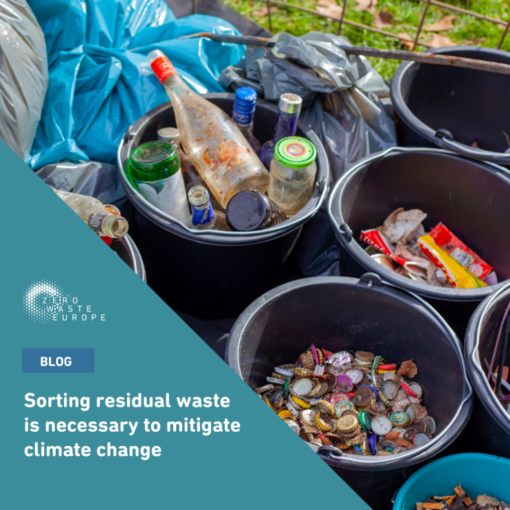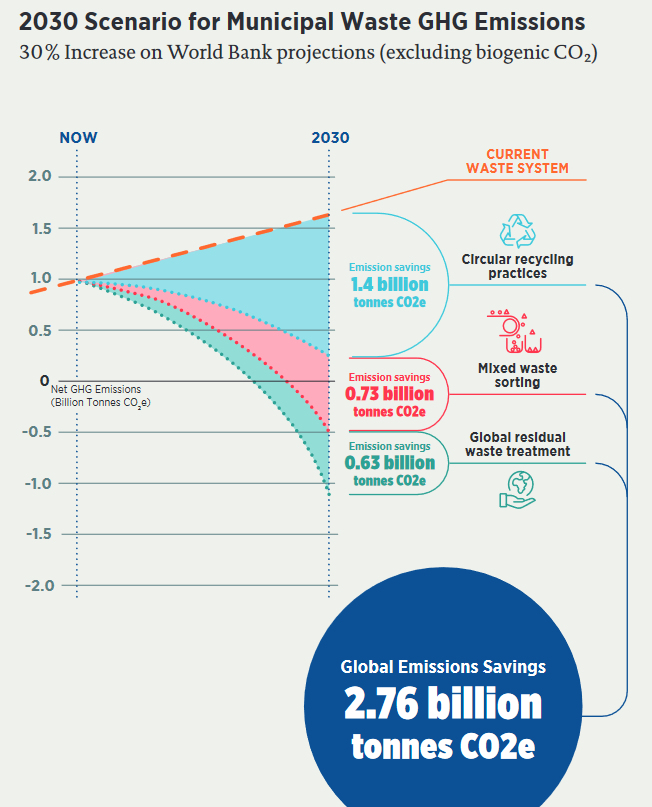
Sorting residual waste is necessary to mitigate climate change
Waste to energy (WTE) plant operators often say that there is little they can do to limit the greenhouse gas emissions from burning waste. They claim that waste arriving at WTE facilities is waste that cannot be recycled and therefore, there is not much they can do to avoid emissions from burning it.
Yet, an increasing number of studies and reports, such as the final report by the EC Technical Expert Group on Sustainable Finance, highlight that a large proportion of waste that is currently incinerated is indeed recyclable and opting for recycling, as opposed to burning, can have a positive reduction on carbon emissions.
A new global report by TOMRA found that sorting of mixed waste is fundamental in maximising recycling rates and GHG benefits. The study estimated that mixed waste sorting could save 0.73 billion tonnes of CO2 per year, globally.

According to the report, mixed waste sorting will always be necessary to recover materials that are not effectively captured by DRS (Deposit Return System) and separate collections systems. Further sorting of mixed waste would therefore enable the capture of materials, such as packaging, that often end up in mixed waste streams.
The report found that mixed waste sorting can capture more than double the amount of plastic packaging for recycling in comparison with capture rates of separate collections. More importantly, this can be done with already existing technologies and processes.
For example, IVAR IKS, a municipality- owned company in Norway, processes 40 tonnes of mixed waste per hour, effectively sorting plastics (PET, PS, LDPE, HDPE, PP), paper (mixed paper, cardboard, beverage cartons) and metals (aluminum, steel).
In this sense, the findings of the report are similar to those of ZWE’s report on Material Recovery and Biological Treatment (ZWE). It highlights the importance of adopting mixed waste sorting as a fundamental pillar for the residual waste management in the circular economy. However, for this to happen at scale, we need supporting measures.
First, we need a new EU strategy for the management of residual waste that prioritises the recovery of materials from residuals. However, this needs to be supported by incentive schemes that ensure that the recovery of materials from residuals is prioritised over incineration. As an example, through the introduction of a carbon tax on waste incinerated.
Janek Vähk is the Climate, Energy and Air Pollution Coordinator at Zero Waste Europe.